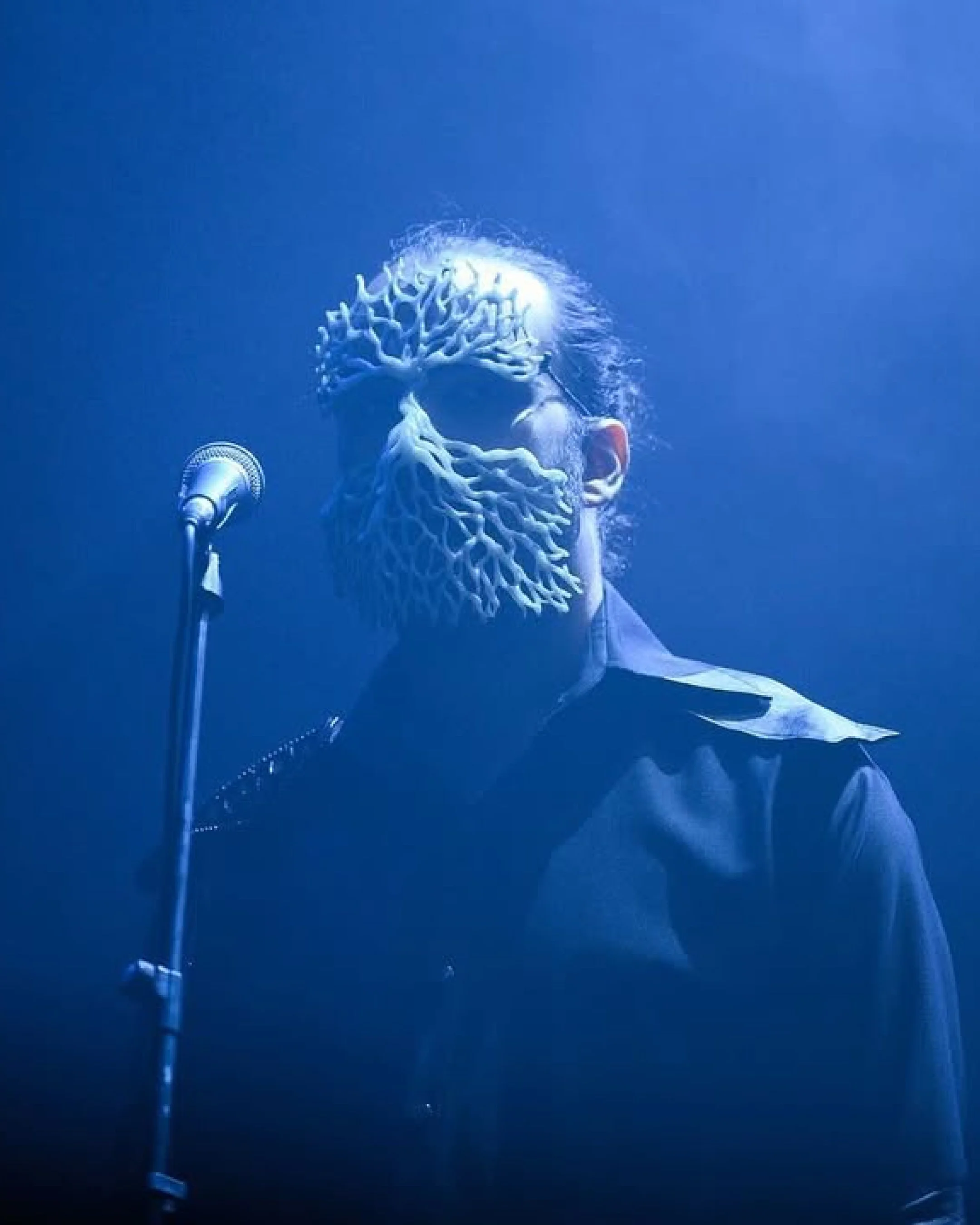HUUUM
HUUUM’s debut places Iranian folklore in a new frame. Their music treats dialects, dances, and ritual chants not as relics, but as fuel for invention. Darvish’s vocals alternate between guttural intensity and whispered hymn, creating a visceral sense of memory colliding with the present.
Electronic textures from Sharafi fracture and reform ancient motifs, while Collao León’s reeds weave a connective thread. The result is not a polished fusion but an ecstatic re-imagining: folk futurism as lived experience, raging and tender at once.
One track might begin with the winds of Baluchistan, another with a Khorasani rhythm, only to be shattered by waves of electronics. This is how HUUUM travels: carrying fragments of southern lullabies, desert laments, and mountain dances into the noise of European clubs. Their work refuses nostalgia.
Instead, it shows how folklore persists when stripped down and spliced with new languages. In that refusal, listeners glimpse a geography of sound—stretching from Iran’s deserts to Vienna’s avant-garde lofts.
For Western ears, HUUUM can sound like an exotic blend of unfamiliar modes with experimental jazz. For Iranians, the local roots are instantly recognizable, sometimes even too familiar, leaving the electronics as the true shock.
This double perception—foreign curiosity on one side, local estrangement on the other—creates tension at the heart of their art. It is this very tension that makes HUUUM compelling: their music asks who gets to define innovation, and in which cultural frame. Listening becomes less about answers than about being shaken into new awareness.
by Taner Turna


